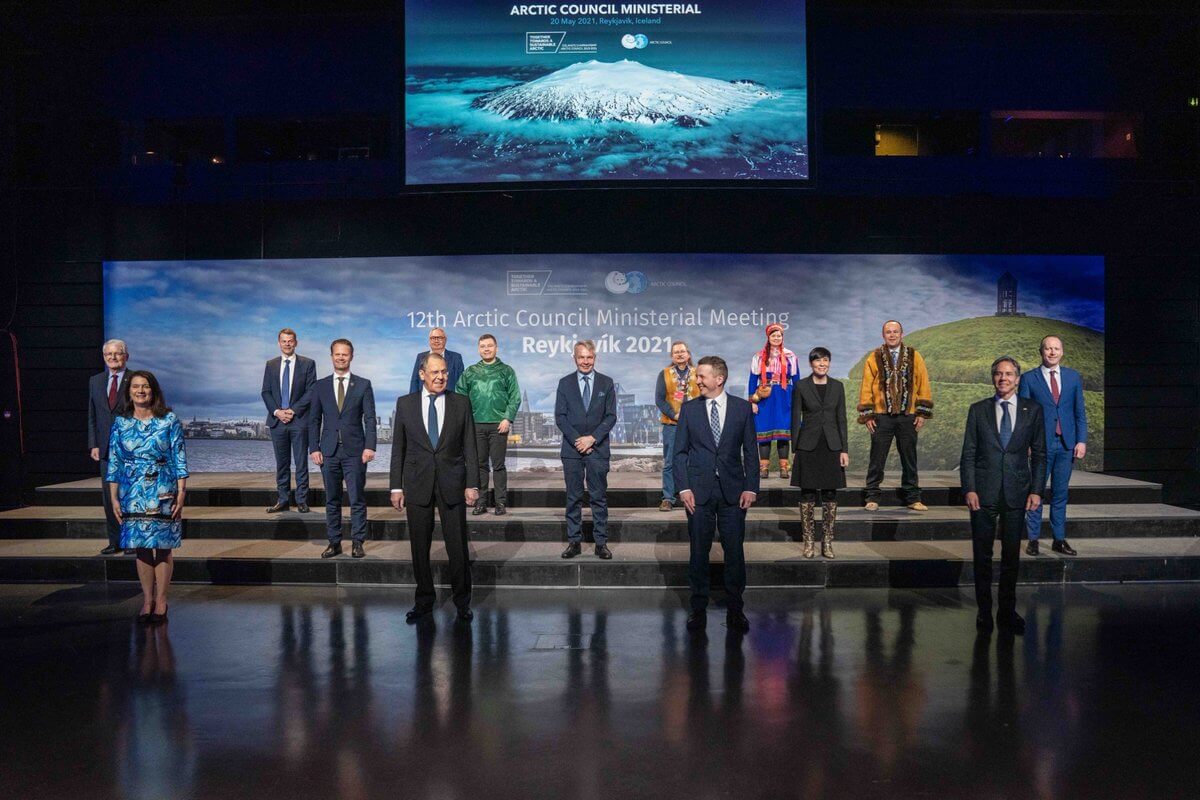Foreign ministers of the Arctic Council on Thursday signed their first-ever strategic plan for the region, which will guide the body’s work for the next decade. It reflects the “shared values and joint aspirations of the eight Arctic States and six indigenous Permanent Participants” to maintain and promote sustainable development, environmental protection, and good governance in the Arctic.
The framework was adopted during the 12th Arctic Council Ministerial, which was hosted by Iceland in its capital city of Reykjavik. Icelandic Minister of Foreign Affairs Gudlaugur Thor Thordarson reviewed the Council’s work over the past two years and said that though there was now an increased understanding of the conditions of the region among member states, a clearer policy to address various challenges remained elusive. The diplomat stressed that the strategic plan was an important step to fill this void and that it would lay the foundation for the Council’s work for years to come.
Member states also signed a joint Reykjavik Declaration to mark the Arctic Council’s 25th anniversary, reaffirming their commitment to advance “peace, stability, and constructive cooperation” in the region. Last year, the gathering in Rovaniemi, Finland had failed to release a customary joint statement due to tensions between the United States (US) and other members over climate change.
However, this year, noting the effects of global warming on the accessibility of the Arctic zone, the countries agreed that any expanded economic activities there “should be sustainable and transparent.” They also stressed the importance of achieving their climate goals per the terms of the Paris Agreement and committed to protecting the Arctic environment and the rights of indigenous peoples. The nations further emphasised the importance of strengthening and sustaining Arctic scientific research and long-term observations and said that scientific data, coupled with traditional and local knowledge would help inform decision-making in the region.
The summit also marked the end of Iceland’s two-year chairmanship of the Council and the beginning of Russia’s term for the 2021-23 period. Russian Foreign Minister Sergei Lavrov said that Russia “intends to maintain the spirit of cooperation, strengthen constructive interaction among all the member states and reinforce our readiness to search for the best possible solutions for the Arctic and the people who live there.” To this end, the diplomat spoke of efforts to promote indigenous cultures and languages, preserving Arctic biodiversity and advancing economic development.
Arctic Council Approves First-Ever Strategic Plan
The framework was adopted during the 12th Arctic Council Ministerial in Reykjavik, and will guide the body’s work for the next decade.
May 21, 2021

SOURCE: TWITTER (@StateDept)
